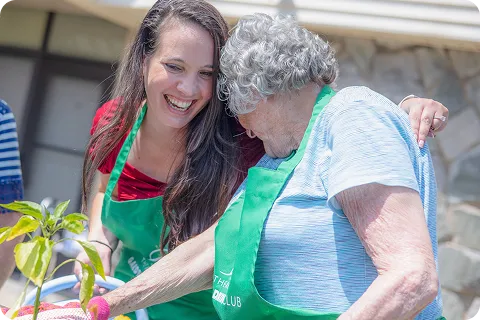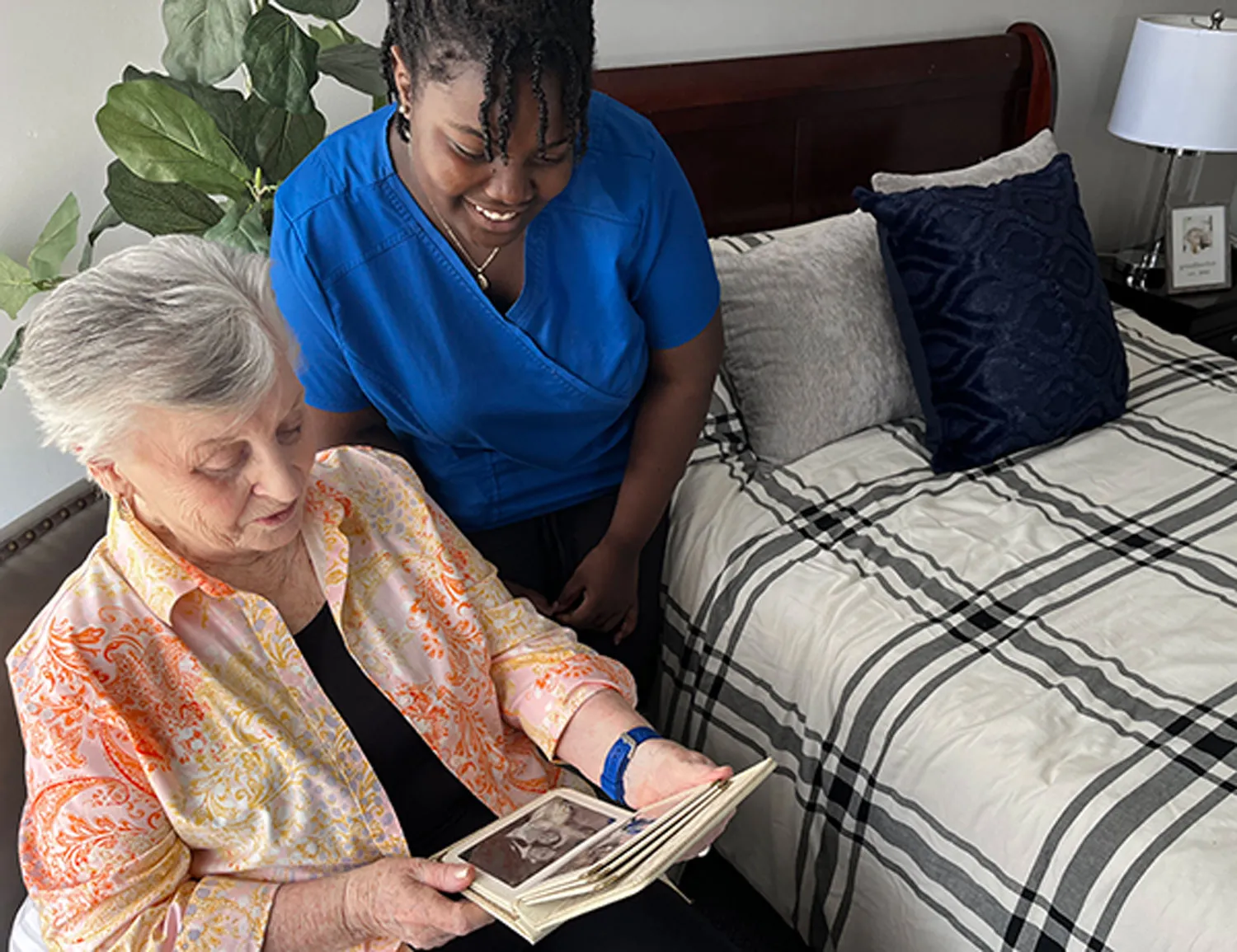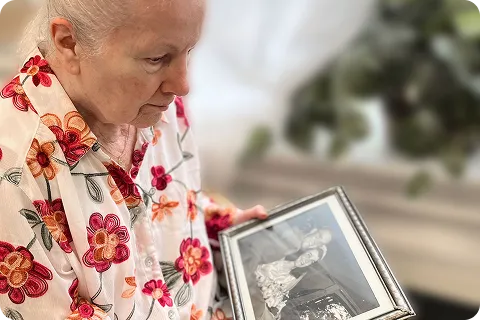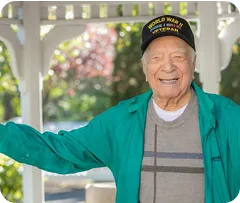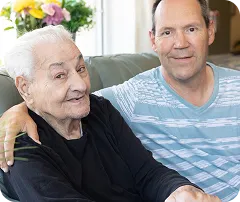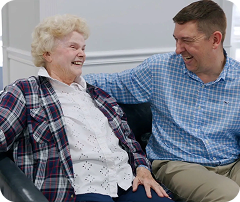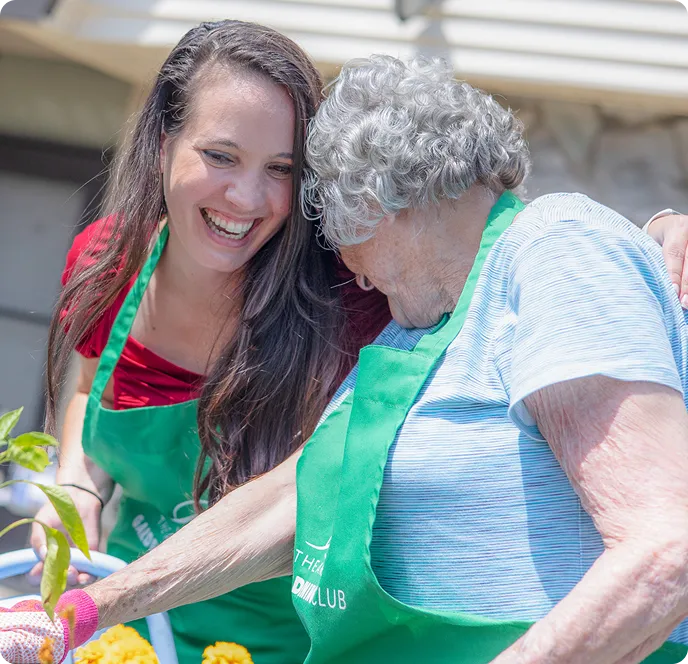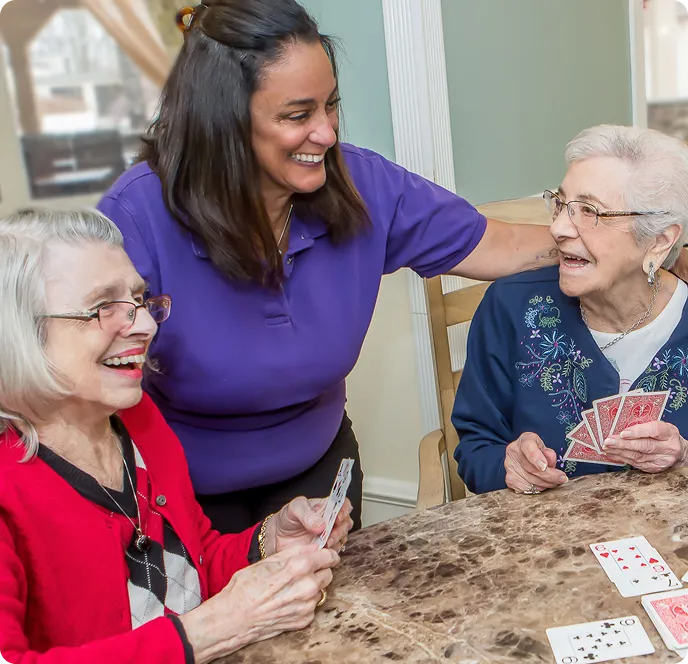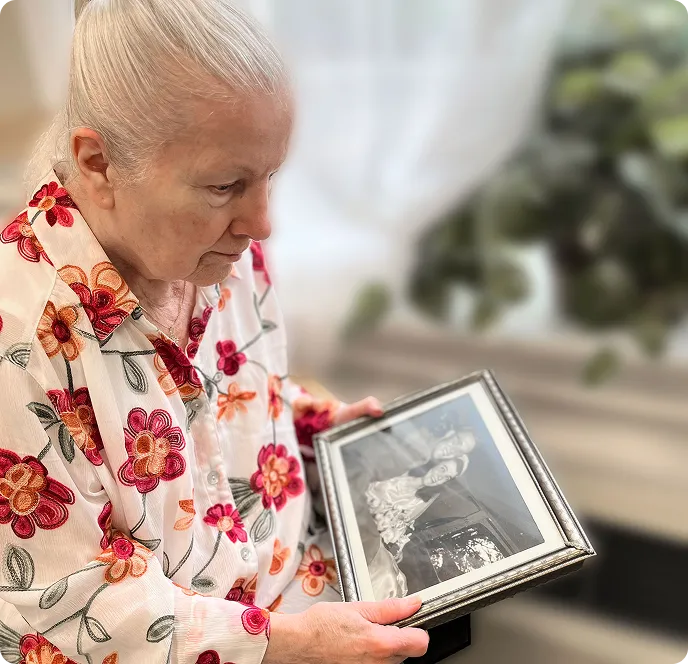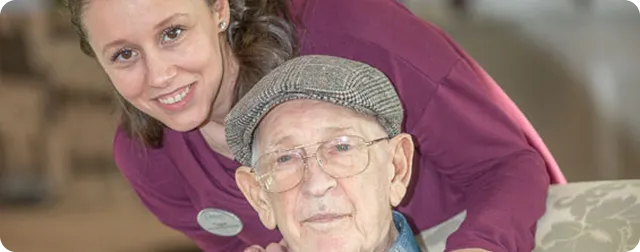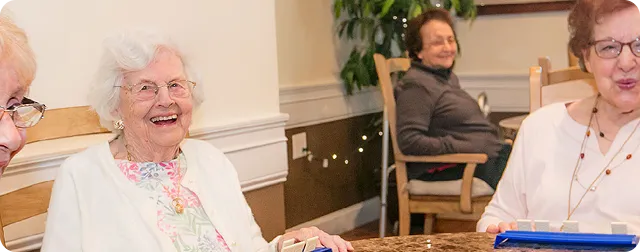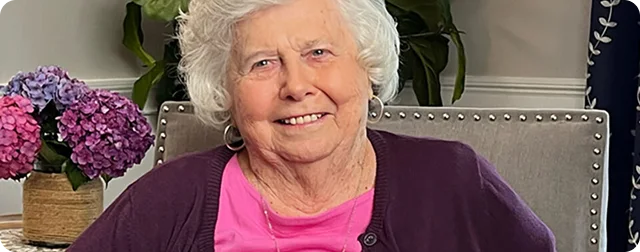(631) 778-7747
How to Stay Connected to a Loved One With Dementia
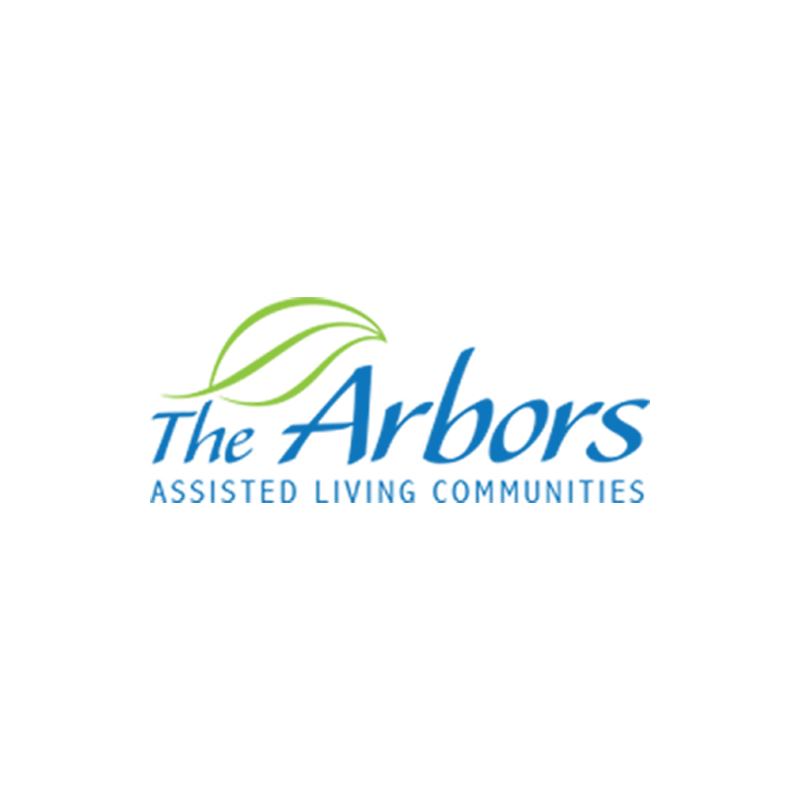
How to Stay Connected to a Loved One With Dementia
January 28, 2019

When your parent or a close relative has dementia, maintaining a relationship can be difficult. As the condition progresses, memory fades and your loved one may feel as much of a stranger to you as you are to them.
When cognitive abilities also degenerate, people are left struggling and longing to connect with a loved one who may not be able to speak or show any signs of understanding. While this relationship can feel like a challenge, there are still ways to keep a meaningful connection with your loved one who has dementia.
Plan Your Visits Ahead of Time
Visiting your loved one is meant to be a warm, rewarding experience. If they live in an assisted living community, plan out visits with your loved one ahead of time and make a plan. Seeing the visit on your calendar can mentally prepare you to mee the challenges that come along with having a loved one that suffers from dementia.
Some activities may include going for a walk together or reading your loved one of their favorite stories. Center your time with your loved one around their past hobbies and interests. Many patients with dementia may not be able to respond, but they can still listen and interpret what’s happening around them.
Keep it Familiar
If your loved one was an animal lover, try to coordinate a therapy dog or cat visit. If they were passionate about the arts, find a way to do a simple craft together. Many people with dementia will light up at the sight of a familiar object or old pastime. They may not be able to recall details about their own experiences, but something deeper is awakened by the comforting presence of a familiar hobby.
Engaging in your loved one’s past interests will also help you feel more connected to them. They might not be able to talk about things like they used to, but preserving their memory and keeping their identity intact is important for both you and them.
Practice Communicating
Many people struggle to communicate with their loved ones who have dementia, so their visits wind up being silent and awkward. Learning how to communicate with a dementia patient will vastly improve your relationship.
Use simple words and short sentences. You may feel strange or even embarrassed at first as if you’re speaking to a child, but these types of exchanges are more likely to elicit a response. Stick to yes or no questions and pay attention to physical and visual cues. Dementia patients often respond in non-verbal ways.
Learn More About Dementia
Understanding dementia can make acceptance and caregiving much easier. Watching a loved one slowly lose their memory and ability to communicate is extremely difficult. Our staff is committed to providing your loved one with the best standard of care and quality of living in our communities.
Contact us today to learn more about The Arbors Assisted Living and how we can help your loved one and provide them with a caring and loving environment.
Recent News
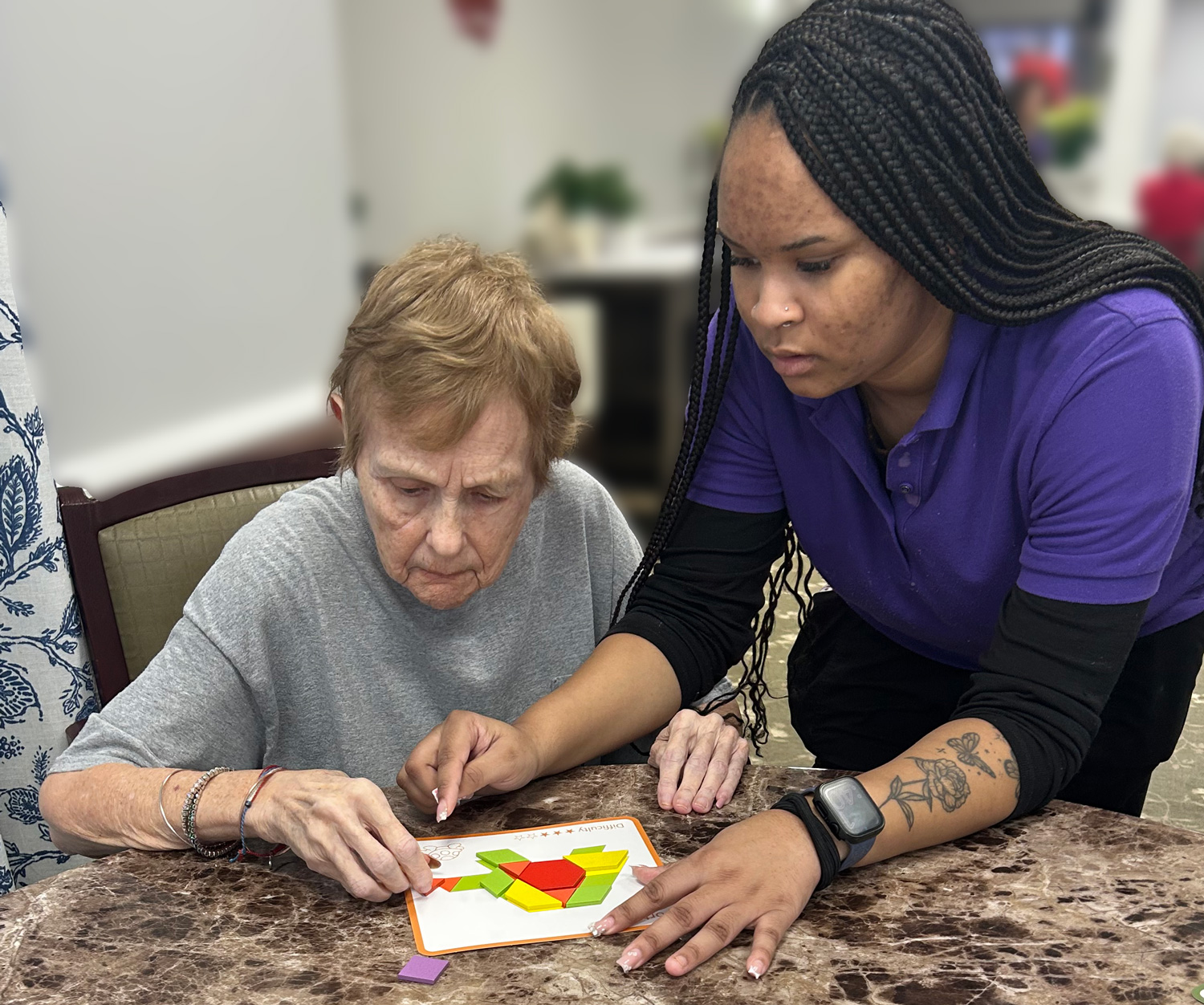
The Power of Touch
February 9, 2026

Winter Readiness for Caregivers: Do You Have a Plan?
January 6, 2026

Important Topics to Discuss With Local Assisted Living Centers
November 10, 2025

When It’s Time: Helping Your Parents Accept the Need for Assisted Living
October 15, 2025

How to Encourage an Aging Parent to Shower When They Refuse
July 2, 2025
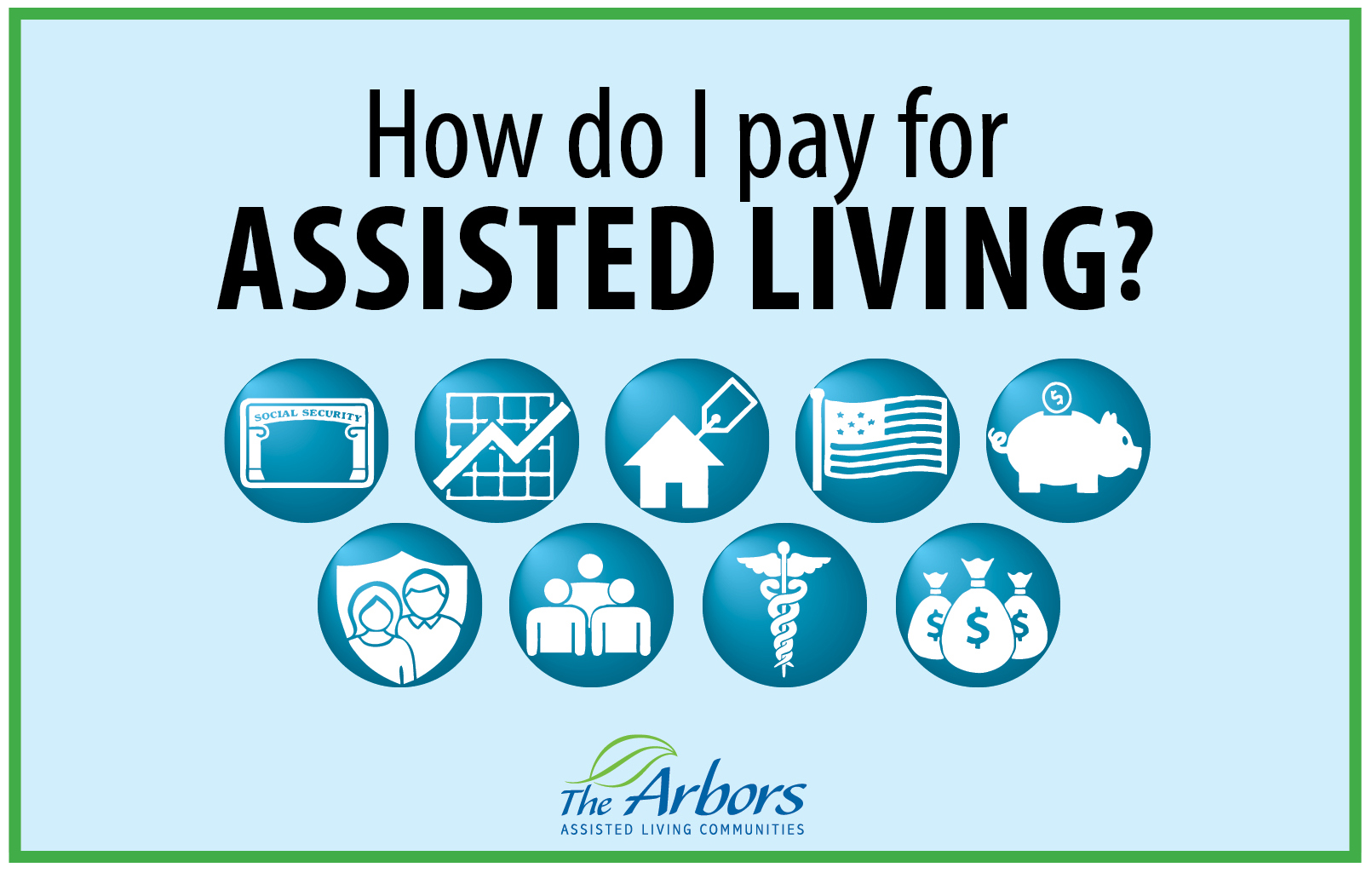
How Do I Pay for Assisted Living
June 6, 2025

3 Signs You Should Consider Assisted Living
May 15, 2025
GET IN TOUCH
Let’s Talk About Making The Arbors Your Home
REQUEST A VISIT
Schedule a Tour of our Long Island Assisted Living Communities


